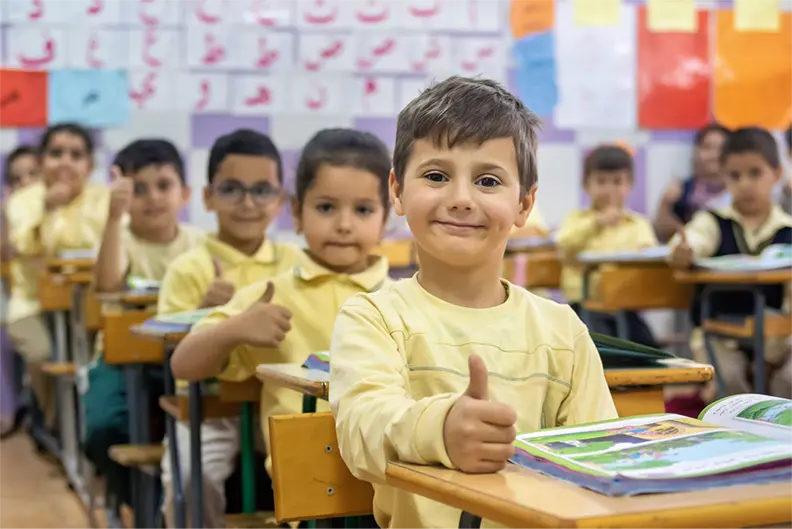As Covid-19 impacts all areas of society, we must direct our attention to the children who are growing up in a different world to the one we imagined.
Schooling has transformed profoundly over the last few weeks. Teachers and school leaders are working hard to engage children in online learning and provide them with some structure as we enter the Summer Term.
With so much change, it may be difficult to look beyond the day to day. However, the effect of Covid-19 will have an unpredicted impact on the upcoming generation and we need to discuss how we can prepare our children and young people for this new and uncertain world.
The impact of Covid-19
The recent report from the OBR outlined the harsh reality that we could see an increase in unemployment by more than 2 million within the UK. Applications for Universal Credit have increased as more people are losing their jobs, incomes and livelihoods, and more than half a million companies are experiencing ‘significant distress’. Older students are facing a future where unemployment and competition in the job market is going to have increased significantly while younger students are witnessing the effects of job loss and financial insecurity on their parents and relatives.
Social distancing and isolation have already created added pressures within families, including mental health difficulties, friendship and relationship problems and increased anxieties. Childline’s summary of young people’s key concerns about coronavirus during calls illustrates the link between Covid-19, mental ill-health and increased feelings of being ‘trapped’. During this period, students will be witnessing the hardship and struggles of adult life in a way which they are normally protected from and they will be doing so without the safe space of school, after school clubs and relatives’ houses for escape.
While we wade through the daily struggles of living with Covid-19, we also need to think seriously about the impact that isolation and lock-down are having on our children and young people.
In the long term, young people are now looking at entering an uncertain future where their job and economic prospects are reduced and where they will need a much stronger skill set to succeed.

How can we invest in Human Capital – and why should we?
Education is partly an investment in “Human Capital”. By investing in our students’ education, we hope that they will, in turn, contribute to the society or economy. As teachers, we also hope that by increasing their Human Capital, we will increase students’ likelihood of having a full and happy life.
When schools do return, we will be facing new challenges. Businesses and education providers have long talked about the uncertainty of future job markets, referring specifically to the increase in digital technology and the automation of many jobs. Governments across the world have broadly agreed that skills areas such as critical thinking, creativity, communication and entrepreneurship are needed to prepare young people for work and society. Unfortunately, changes to the education system have been slow and teachers still report that skills are not valued or explicitly taught. Now is the time to change that.
Once we return to school, our priorities will be different. Essential skills such as Staying Positive, Problem Solving and Creativity are going to be invaluable. We are going to be asking students to return to formal education after months away; we need to show them that school can equip them for their futures. Students will need to build their capital by acquiring transferable skills such as Teamwork, Leadership, Speaking and Listening. Skills which have long been valued by businesses and enterprises but now, more than ever, are going to be the difference between success and failure for our students.
.jpg)
What can be done?
Schools are not just a place of learning. Any teacher will tell you that they also support their students much more widely than that. We may feel powerless against the pandemic but we do have options.
We need to realise that students are going to need a different kind of education if they are to face this new and uncertain world. Then we can start to teach students not just to cope but to thrive. By investing in our young people in the right way, we will help them to come out of the pandemic ready and prepared. Primary and secondary schools are going to be at the forefront in ensuring that we do not have a generation who are unable to adapt to a post-pandemic economy. Now is the time to open up the conversation on what good education looks like, to invest in our pupils and give them the tools to navigate and succeed no matter what challenges the future brings.
Schools cannot do this alone. We need the government to recognise how vital essential skills are for future economic success. We need the support of business and employers to champion the development of essential skills. We need collaboration and consensus between policymakers, educators and private sector leaders. At the Skills Builder Partnership this is what we aim to do.
The need to fill the essential skills gap in education is more urgent than ever and we are working hard with our partners to support schools in addressing this issue. Our Partnership of schools, colleges, skills-building organisations and employer partners are all dedicated to ensuring the next generation will be prepared and equipped with the skills they need to succeed in a post-Covid-19 world.





